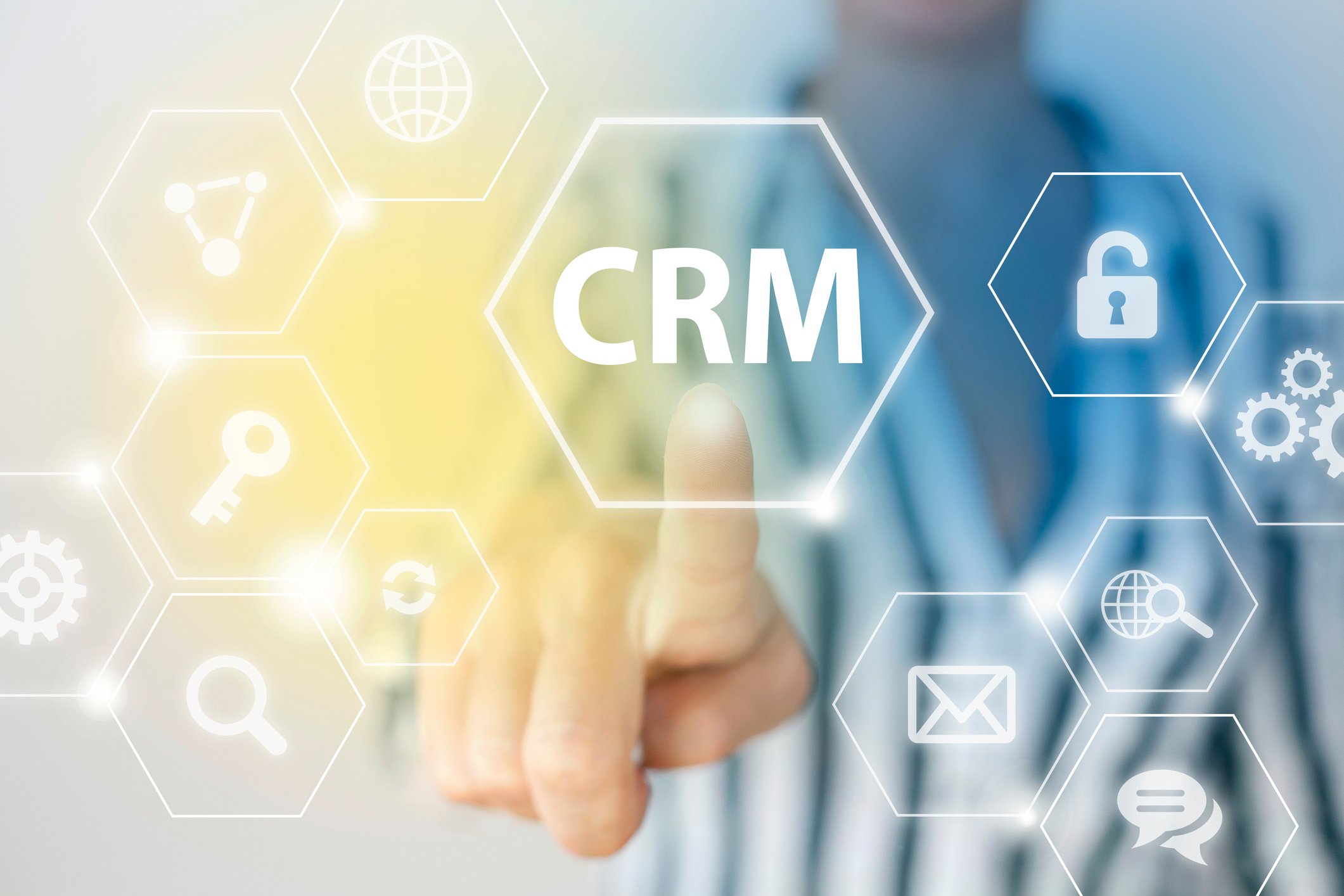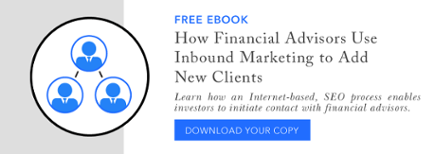

How To Pick and Use the Best CRM for your RIA
A financial advisor CRM (Customer relationship management system) is becoming an increasingly popular marketing tool advisors use on a daily basis. To date, nearly half of all registered investment adviser (RIA) firms use a CRM system as part of their financial advisor marketing plan. As with many other digital marketing techniques used within the industry, the increased use of CRMs has a positive correlation with an improved customer experience, which means increased sales and assets under management (AUM) for you.
Recent studies have shown that most firms with AUM totaling $100 million and above will adopt a CRM system at one point or another. Conversely, firms holding less than $5 million are not likely to invest in a CRM system. Over time, these statistics have only grown more polarized. More and more firms making an excess of $100 million are adopting CRM systems, while an increasing number of firms with $5 million or less are forgoing them.
If your firm is ready to take the plunge and is looking to find which customer relationship management system is right for you, here is a brief article describing how to pick and use the best CRM for your RIA. You may also want to consider working with a marketing firm that specializes in digital marketing for RIA’s and IAR’s.
A Brief Description Of CRM: Basic to Enhanced
CRM is a strategy frequently used by companies to monitor customer relationships from prospecting/pre-sale all the way to post-sale/retention. Most of the information therein is stored in what is known as a CRM database. These systems typically track marketing and sales components such as emails, phone calls, websites, live chats, and social media interactions, giving your firm’s customer-facing employees an easy means of grasping a prospective client’s activity. A well utilized and well optimized CRM can help scale your RIA to the next level. The types of CRM’s available for you to use range from the very basic to highly enhanced. Having all of your customer’s information captured in a CRM is a great start, but by using an enhanced CRM system you will be able to take your sales process to the next level. Many enhanced CRM systems can manage the nurturing process from beginning to end...and beyond.
CRM: A Centralized Database
The biggest benefit of adopting a CRM system for your RIA firm is that you and your colleagues are now equipped with a central database for housing all pertinent customer information. As you likely know by now, there is no more important asset than a firm’s customer base. However, many advisory firms store this kind of knowledge in multiple places where it is often inaccessible to the employees who need it. This disparity will only grow more severe as your firm expands, making it more difficult for your advisors to chase prospects and obtain valuable information on them.
Prior to adopting a CRM system, most firms opt to use spreadsheets. While this is efficient enough for a time, information only accumulates, meaning the sheets only get bigger and more difficult to sift through. Needless to say, this creates an extra burden for your team, as they now have to spend a significant portion of their day sifting through spreadsheets for information that should already be readily available.
Consequently, this will promote a sense of fatigue and certain bits of information may not even make it to the spreadsheet, in order to save time. As a result, this makes customer service and sales prospecting difficult, as the to organize is drastically scaled back. The result, as you may have guessed, is a confused team and a pitiful number of closed deals.
Fortunately, these problems can be avoided by adopting a CRM system. Doing so will allow you to funnel all current and prospective customer information into a single place. From there, you can automate data entry using CRM software.
Does Your Company Need A CRM?
If your goal is to facilitate a convenient and impactful relationship with your client base while simultaneously making life easier for your team members, then the answer is yes, your firm should adopt a CRM system. Financial services firms in particular can benefit from a CRM system as their clients provide them with a bounty of private/confidential information. A solid CRM system is just one facet of your over-all financial advisor marketing approach. To help scale your firm to the next level, and effectively use the best CRM for your firm you may want to consider using the services of a digital marketing firm specializing in RIA’s, such as Paladin Digital Marketing.
If you are unsure if using a CRM is the way to go, ask yourself the following questions: will you benefit from a consolidated and easily navigable database containing detailed records about current and prospective customers? How do you store current customer-related information? Do your customers interact with multiple people on your team? Is data management creating company wide fatigue? Are you satisfied with your current methods of monitoring the productivity of your sales team?
Determining The ROI Of A CRM
Because there are so many CRMs to choose from, with many of them boasting a seemingly identical array of features, you may find yourself a little overwhelmed when starting out. Fortunately, the majority of modern CRM systems are relatively easy to set up. Some of them are even free! On top of that, they are a breeze to use, can handle a variety of manual tasks, and can be optimized for efficiency in various ways.
Several recent studies concluded that the average annual salary for most salespeople is $60 - $65,000. However, they also determined that these same salespeople spend approximately 2 hours every day manually entering data. In a nutshell, this essentially means you are paying them anywhere north of $12,000 a year for data entry.
If that wasn’t bad enough, consider that this data entry literally constitutes an interruption to their other daily tasks. The University of California Irvine (UCI) recently conducted a study that concluded it takes nearly 25 minutes to regain one’s focus after an interruption. If you agree that time could definitely be better spent selling, we see a CRM system in your future. The cost of a CRM system varies, with many being free.
Determining What CRM Is Right For Your Company
As mentioned, there are plenty of CRMs to choose from, with many of them pushing relatively similar features. While diverse features are typically flaunted as selling points, which one you ultimately choose is wholly dependent on your goals. Most businesses make the rookie mistake of over-evaluating the features they need. Trying to purchase a one-size-fits-all system straight out of the gate could actually end up significantly draining your resources. Instead, focus on implementing a basic CRM with the most essential features. After all, you can always optimize down the line.

Lauren Aimes, CPA
Search Here
Categories
- AI (18)
- blogging (2)
- branding (1)
- content (12)
- custodians (1)
- Digital (345)
- email marketing (3)
- fcmo (2)
- fees (1)
- financial advisor marketing (62)
- Google (3)
- Ideas & Tips (78)
- Investor Experience (7)
- lead generation (7)
- linkedin (1)
- Marketing (371)
- newsletters (1)
- Online Transparency (2)
- search engine optimization (3)
- seo (9)
- Social Media (2)
- video (2)
- Websites (108)
- YouTube channel (2)
Recent Posts
-

-

How Financial Advisor Blogging Generates Thought Leadership and Leads
November 24, 2025 -

Top 5 Ways Digital Marketing Benefits Financial Advisors Seeking Leads
November 20, 2025 -

Trust Is The Biggest Online Marketing Challenge For Financial Advisors
November 17, 2025 -

Compliant Financial Advisor Bios Using AI Website Builders
October 22, 2025

